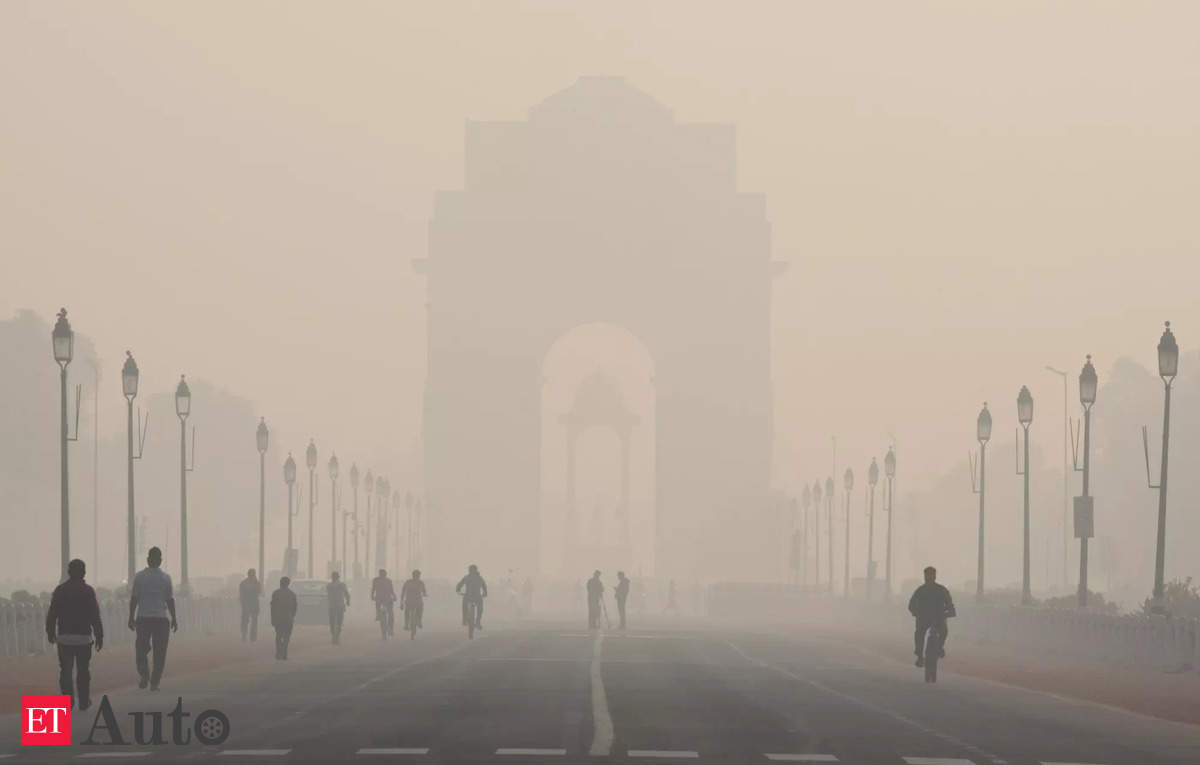


The Delhi government has taken strict measures to combat pollution and smog in the city by implementing GRAP Stage III, which includes a ban on BS-III petrol and BS-IV diesel vehicles. This comes as part of India's efforts to adopt Bharat Stage VI emission norms by 2020 and reduce air pollutants by 80%. The move aims to ensure a cleaner and healthier environment for the citizens of Delhi.
Delhi's War on Air Pollution: Implementation of GRAP Stage III and Bharat Stage Norms
Background
Air pollution has emerged as a significant problem in various cities across the world, including Delhi, India. The city has been grappling with alarming levels of air pollution, primarily caused by factors such as vehicular emissions, construction activities, and stubble burning in neighboring states. To combat this issue, the Delhi government has implemented various measures over the years.
GRAP Stage III Measures
In November 2022, the Delhi government declared a "severe" air quality status and invoked Graded Response Action Plan (GRAP) Stage III. This measure aims to curb air pollution by implementing a series of restrictions and actions:
Adoption of Bharat Stage VI Emission Norms
In addition to GRAP Stage III, the Delhi government is also working towards adopting Bharat Stage VI (BS-VI) emission norms. BS-VI norms are more stringent vehicle emission standards designed to reduce air pollutants such as particulate matter (PM10 and PM2.5), nitrogen oxides (NOx), and hydrocarbons (HC). India plans to fully implement BS-VI norms by 2020.
Aim and Impact
The implementation of GRAP Stage III measures and the adoption of BS-VI norms are aimed at reducing air pollutants by 80%. These measures are expected to contribute to a cleaner and healthier environment for the citizens of Delhi.
Top 5 FAQs
1. What is GRAP Stage III? GRAP Stage III is a set of emergency measures implemented in Delhi to combat severe air pollution.
2. What are the restrictions under GRAP Stage III? GRAP Stage III includes a ban on BS-III petrol and BS-IV diesel vehicles, closure of schools and colleges, and restrictions on construction activities.
3. What are Bharat Stage VI emission norms? BS-VI norms are stringent vehicle emission standards designed to reduce air pollutants such as particulate matter, nitrogen oxides, and hydrocarbons.
4. When will India adopt BS-VI norms? India plans to fully adopt BS-VI norms by 2020.
5. How do GRAP Stage III and BS-VI norms contribute to air quality improvement? These measures aim to reduce air pollutants by 80%, resulting in a cleaner and healthier environment for Delhi citizens.

Shani Jayanti, the day dedicated to the worship of Lord Shani, falls on May 27, 2025, coinciding with Jyeshtha Amavasya. As per Udayatithi, the puja and rituals should be performed on the same day. However, certain tasks should be avoided on Shani Jayanti. Read on to know the significance of this day and the dos and don'ts to please Shani Dev.

Chief Minister Yogi Adityanath visited the Shanti Ashram in Lucknow to pay his last respects to Sant Shiromani Sai Chanduram, the head priest of the Ashram. He draped the mortal remains of Sant Shiromani with a saffron Angvastra and paid homage before his statue. Expressing deep sorrow over his demise, the Chief Minister wrote on social media about the irreparable loss of the spiritual leader. A large number of devotees gathered at the Ashram premises to offer their tributes and follow his teachings and ideals.

In an effort to improve vision care in rural India, the Bhaktivedanta Hospital & Research Institute held a Mega Eye & Dental Camp in Barsana, Uttar Pradesh. Equipped with state-of-the-art technology, the hospital aims to perform over 5000 PHACO procedures, free of cost, for those in need. The support of Tata Capital Ltd. enabled the camp to expand its reach to over 50,000 beneficiaries and receive the support of esteemed dignitaries including Smt. Hema Malini Ji and Smt. Nupur Desai.

Indian society has a narrow and sexist definition of parvarish, praising daughters who conform to traditional gender roles and blaming parents if they don't. However, it's time to focus on dismantling patriarchy within the household and raise a feminist generation. This means providing equal education to both daughters and sons, encouraging critical thinking and questioning societal norms. Parvarish should not mean curbing basic legal rights but rather empowering individuals to make their own decisions and think for themselves.

India's festival of lights, Deepawali, has been officially recognized by UNESCO as an intangible cultural heritage of humanity. The inscription acknowledges the festival's cultural significance and its ability to bring communities together. Prime Minister Narendra Modi welcomed the announcement, stating that Deepawali holds a special place in India's culture and represents values such as hope and righteousness. This recognition is expected to increase the festival's global popularity even further.

During Prime Minister Narendra Modi's recent visit to Tokyo, the city welcomed him with the soulful chanting of the Gayatri Mantra, one of the most sacred and powerful verses in Indian spiritual tradition. This ancient mantra, found in the Rig Veda, is believed to have a mental healing effect due to its repetitive and focused chanting. Research has also shown that it can improve well-being and provide a sense of peace and connection for both religious and non-religious individuals.

The M3M Foundation unveils 'Payal@40' campaign to commemorate Dr. Payal Kanodia's 40th birthday on December 9, 2025. This campaign, which aims for comprehensive impact across education, healthcare, skill development, and women's empowerment, reflects a leadership approach rooted in service and compassion. With the vision of Dr. Kanodia, the campaign marks a pivotal moment for the Foundation's ongoing mission of equitable development in India.

In a unique move to promote tourism, Madhya Pradesh Chief Minister Mohan Yadav has planned to hold cabinet meetings at famous heritage sites in the state. The latest meeting will take place at Khajuraho Convention Centre, known for its architectural wonders. The two-day visit will also include a jungle safari in Panna Tiger Reserve and review meetings of various departments, highlighting the state's vast natural and cultural beauty.

The main accused and owners of the Goa nightclub where a massive fire killed 25 people have fled to Phuket, according to Goa Police. The police have coordinated with Interpol to apprehend the accused as a Look Out Circular was issued against them. Meanwhile, an employee of the club has been arrested and the postmortem on all 25 deceased has been completed.

Experience a global perspective with the launch of "October 20, 2025e-Paper". Get your daily dose of news and reviews from cinema and streaming in "First Day First Show". Stay updated on the top 5 technology stories with "Today's Cache" and simplify science with "Science For All". Decode the headlines with hard facts in "Data Point" and learn to prioritize your health in "Health Matters". Stay updated on the literary world with "The Hindu On Books". All in one place!